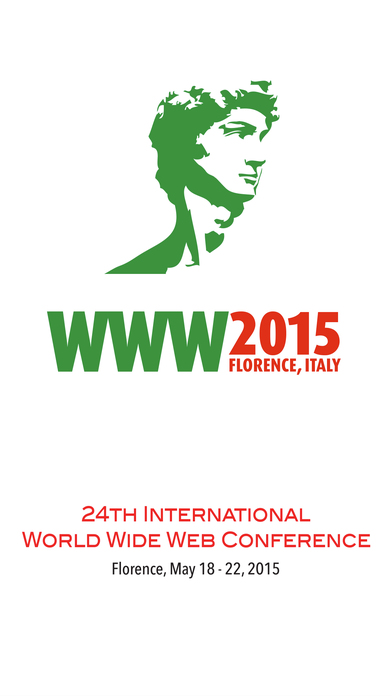经济学 | 国际会议/期刊专刊信息5条
经济学
Public Relations Review
CALL FOR PAPERS Truth, evaluation and education
全文截稿: 2018-09-03
影响因子: 0.0
网址: https://www.journals.elsevier.com/public-relations-review
Should we believe the media hype, there are changes in society’s epistemic foundation. Descriptions abound of a “post-truth society” – word of the year in 2016, according to Oxford Dictionaries. Post-truth denotes “circumstances in which objective facts are less influential in shaping public opinion than appeals to emotion and personal belief.” While the use and misuse of facts and research is nothing new, it might be possible to talk about an intensification due to changes in the media landscape leading to fragmentation and potentially to “echo chambers” where people seek to get their views confirmed without being exposed to counterarguments.
If it is correct that the epistemic foundation of society becomes more polarised, fragmented, uncertain and fluid, grasping the ways in which organisations communicate becomes important to understand what contributes to increase or decrease in social fragmentation. What truths are forwarded by public relations, and how do organizational intelligence and ultimate goals of profit and legitimacy play into this?
This special section of Public Relations Review accepts papers addressing the above challenges looking in particular on what this means for the following:
- Truth, trust, and transparency
- Value, evaluation, and measurement of public relations
- Education and capabilities
经济学
Pacific-Basin Finance Journal
Special Issue: Financial Markets: Challenges and Opportunities
全文截稿: 2019-01-01
影响因子: 0.0
网址: https://www.journals.elsevier.com/pacific-basin-finance-journal
Topics include (but are not limited to):
- Asset Pricing
- Behavioral Finance
- Empirical Corporate Finance
- Derivative Markets
- Financial Econometrics
- Financial Markets
- International Finance
- Market Microstructure
- Risk Management
- Volatility Models
- Banking
经济学
Pacific-Basin Finance Journal
Special Conference Issue: 2018 China International Risk Forum (CIRF)
全文截稿: 2019-02-01
影响因子: 0.0
网址: https://www.journals.elsevier.com/pacific-basin-finance-journal
The Pacific Basin Finance Journal has devoted a special issue of its Journal to papers to be presented at the 2018 China International Risk Forum (CIRF) to be held on December 14 - 15, 2018 at Zhejiang University in Hangzhou, China. The purpose of the forum is to promote research on risk, uncertainty, risk management, FinTech, and related finance topics in the Asia-Pacific region, Indian subcontinent and around the world. Potential research topics include but are not limited to:
- FinTech and risk management
- Big data applications and predictive modeling in risk management
- Corporate risk management, governance and control
- (De)Leverage, risk management, and financial safety of financial institutions
- Pension risk, health risk and insurance underwriting and investment risk
- Systemic risk: measurement and management
- Credit risk, interest risk, market risk, liquidity risk, and operational risk of banks and other financial institutions
- Ambiguity and ambiguity aversion
- Catastrophic risk and its management
- Compliance to financial regulations
- Behavioral perspectives of risk management
经济学
EGER 2019
International Conference on Economic Development and Growth, Economic Policy and Rural Development
摘要截稿: 2018-08-15
全文截稿: 2019-02-13
开会时间: 2019-02-23
会议难度: ★★
会议地点: Tokyo, Japan
网址:http://tarij.com/eger-february-2019/
The EGER conference is a top international academy for researchers, practitioners, developers, application users, scientists, academics and scholar students to explore revolutionary ideas , results, and to exchange techniques, tools, and experiences.
We invite participation of all interested in this meeting which provides an insight into original research contributions relating to all aspects of:
-Social Sciences
-Database engineering
-Topics related to Management
-Business
-Economics
-Social Science
-Humanities
-Education
-literature
-Applied sciences
The aim of our event is to support, encourage and provide a platform for networking, sharing, publishing and nurturing the potential growth of individual scholars across the globe with innovation approach.
经济学
The Leadership Quarterly
Special Issue on Leader/Leadership Development
摘要截稿: 2018-12-01
全文截稿: 2019-05-15
影响因子: 0.0
网址: https://www.journals.elsevier.com/the-leadership-quarterly
This call for proposals encourages researchers engaged in cutting edge leadership development research and/or practice to share their work in a special issue and a conference on that topic. This special issue call is in conjunction with the 27th Kravis-de Roulet Leadership Conference to be held March 1-2, 2019 at Claremont McKenna College in Claremont, CA USA. Authors of proposals selected by the editorial team for the conference presentation will have an opportunity to showcase their work at the conference. Please note that authors who are unable to attend the conference will still get equal consideration by the editors in the review process. The timeline and important dates for the conference and special issue submissions are provided below.
Paying attention to the distinction between leader and leadership development (Day, 2000), topics that will be considered – for either empirical or theoretical contributions – include, but are not limited to:
- New ways of understanding how leaders and leadership develop;
- Approaches that facilitate the development of collective forms of leadership;
- Integrative, multidisciplinary, or transdisciplinary approaches to leadership development;
- Methods linking the development of leaders with collective leadership development;
- Evidence demonstrating the value or effectiveness of leader or leadership development interventions;
- Technological advances that facilitate the development of leaders and/or leadership;
- Developmental approaches in specific contexts (e.g., healthcare, professional services, education, military), which may not easily translate into other contexts but could advance deeper insights into leadership development (Bamberger & Pratt, 2010).
下载Call4Papers App,获取更多详细内容!


登录查看更多
相关内容
专知会员服务
19+阅读 · 2019年10月22日
A Survey of Reinforcement Learning Techniques: Strategies, Recent Development, and Future Directions
Arxiv
80+阅读 · 2020年1月19日
Arxiv
4+阅读 · 2019年8月27日




